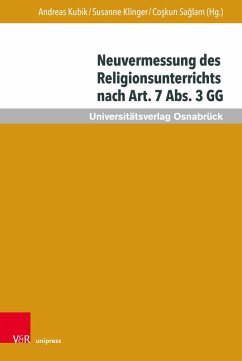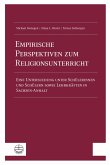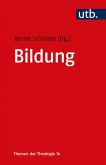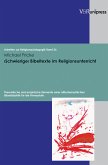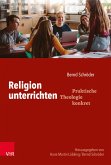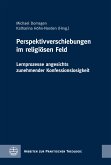Art. 7 Abs. 3 des Grundgesetzes lässt der organisatorischen und konzeptionellen Ausgestaltung und Weiterentwicklung des schulischen Religionsunterrichts große Freiräume. Der bekenntnisorientierte Religionsunterricht schließt konstitutiv das Grundrecht auf negative wie positive Religionsfreiheit ein und eröffnet kleineren Religionsgemeinschaften sowie Konfessionslosen vielfältige Möglichkeiten der Mitwirkung. Ausgehend von der verfassungsrechtlichen Grundnorm entfaltet der vorliegende Band im Licht verschiedener Religions- und Weltanschauungsgemeinschaften Perspektiven für einen zukunftsfähigen Religionsunterricht und lotet Kooperationsmöglichkeiten zwischen dem Religionsunterricht und seinen Ersatzfächern wie Ethik, Philosophie oder Werte und Normen aus. Article 7 (3) of the German 'Grundgesetz' gives space for the organizational and conceptual design and further development of religious education in schools. Denomination-oriented religious education constitutively includes the fundamental right to negative as well as positive freedom of religion. It also opens a wide range of possibilities for participation for smaller religious communities as well as for non-religious groups. Starting from the basic constitutional norm, the volume develops perspectives for a sustainable religious education in the light of various religious and secular communities and explores possibilities for cooperation between religious education and its substitute subjects such as ethics, philosophy or 'values and norms'. Dr. Andreas Kubik (geb. 1973) studierte Germanistik, Philosophie und Evangelische Theologie in Halle, Berlin und Tübingen. Seit 2015 ist er Professor für Religionspädagogik an der Universität Osnabrück.
Dieser Download kann aus rechtlichen Gründen nur mit Rechnungsadresse in A, B, BG, CY, CZ, D, DK, EW, E, FIN, F, GR, H, IRL, I, LT, L, LR, M, NL, PL, P, R, S, SLO, SK ausgeliefert werden.

